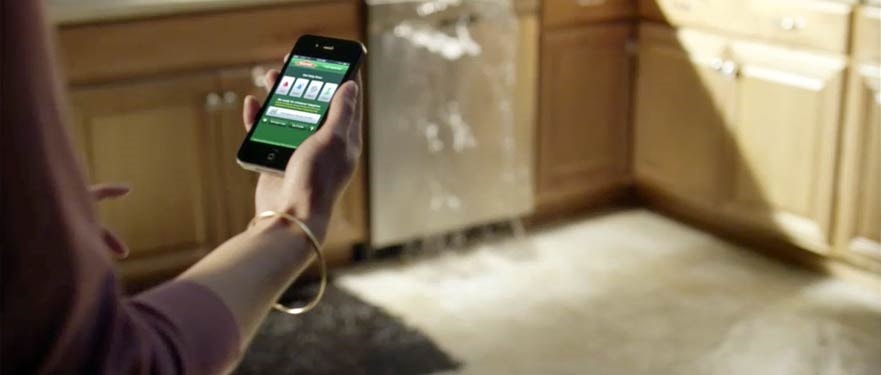
Water Damage Emergency Tips
What you can do until help arrives
Water Tips | Fire Tips | Biohazard Tips | Mold Tips
Here at SERVPRO of Madison, Lawrenceburg and Versailles, we see numerous water damages due to BURST PIPES in the winter and even spring months. We cannot stress enough the importance of insulating your exposed plumbing at your home and business.
Insulating water supply pipes in your home is a good idea for several reasons.
In cold-winter climates, water supply pipes are exposed to exterior walls or unheated spaces may freeze, burst, and flood your home—a situation that can cause many thousands of dollars in damage. When a single water pipe bursts it could potentially pour thousands of gallons of water into the home. Insulating pipes is a key element to any efforts to winterize plumbing in the home.
Don't forget about your exterior pipes!
A great many burst pipes occur where hose bibbs extend through the walls of the home to the outdoors. When these exterior metal faucets are exposed to frigid winter temperatures, water trapped inside the faucet can expand and burst—causing a split in either the faucet itself or the pipe just inside the walls of the home. If you are lucky, it will be the faucet that bursts and leaks water outside the home, but if you are less fortunate the burst may occur in the pipe inside the home, causing water to pour into your walls or basement.
Have A Water Damage Emergency? Call (812) 574-5744
Have A Water Damage Emergency? Call (812) 574-5744
What To Do After Flooding
- Remove excess water by mopping and blotting.
- Wipe excess water from wood furniture after removal of lamps and tabletop items.
- Remove and prop wet upholstery and cushions.
- Place aluminum foil or wood blocks between furniture legs and wet carpeting.
- Turn air conditioning on for maximum drying in summer.
- Remove colored rugs from wet carpeting.
- Remove art objects to a safe, dry place.
- Gather loose items from floors.
What NOT To Do After Flooding
- Don't leave wet fabrics in place. Hang furs and leather goods.
- Don't leave books, magazines or other colored items on wet carpet or floors.
- Don't use your household vacuum to remove water.
- Don't use television or other household appliances.
- Don't turn on ceiling fixtures if ceiling is wet, and keep out of rooms where ceilings are sagging.

 24/7 Emergency Service
24/7 Emergency Service


